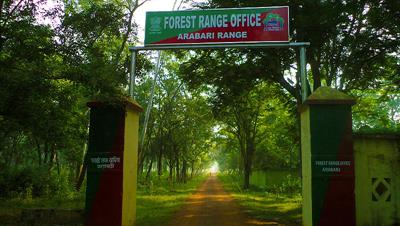
PUMPA - SMART LEARNING
எங்கள் ஆசிரியர்களுடன் 1-ஆன்-1 ஆலோசனை நேரத்தைப் பெறுங்கள். டாப்பர் ஆவதற்கு நாங்கள் பயிற்சி அளிப்போம்
Book Free DemoAnother such incident is quoted below. In \(1972\), the West Bengal Forest Department admitted its failure to revive the state's degraded Sal forests in the southwestern regions. Traditional surveillance and enforcement practises had resulted in a "complete alienation of the people from the administration", resulting in frequent conflicts between forest officials and villagers.
The region's forest and land disputes also contributed significantly to the Naxalites' militant peasant activities. As a result, the Department shifted its strategy making a beginning in the Arabari forest range of the Midnapore district.

Arabari forests, West Bengal
The forest officer A.K. Banerjee involved the villagers in protecting \(1,272\ hectares\) of badly degraded sal forest. In return for the help in protection, the villagers were allowed to collect fuelwood and fodder at a nominal fee. They were given employment in both silviculture and harvesting operations.

Forest officer, A.K. Banerjee
Also, \(25\%\) of the final harvest was given to the villagers. The sal forests of Arabari underwent a remarkable recovery by \(1983\), where a previously worthless forest was valued for Rs \(12.5\ crores\), due to the active and voluntary engagement of the local population.
These examples proved that the local people's participation could lead to efficient forest management.
Reference:
https://commons.wikimedia.org/wiki/File:Arabari_Model_community_forest.jpg
https://commons.wikimedia.org/wiki/File:Ajit_Kumar_Banerjee.jpg